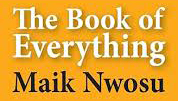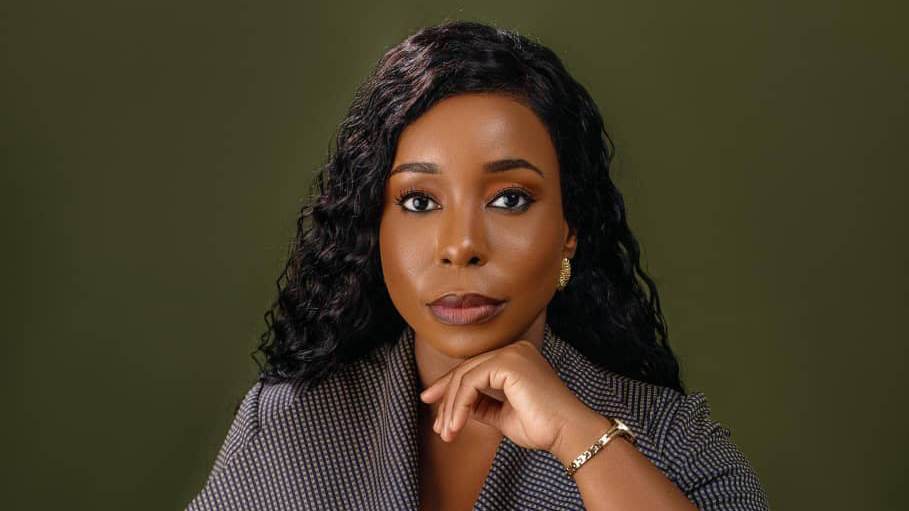
I have had a chequered relationship with journalism—not just in my active engagement with the profession for one and a half decades, but in the sheer number of media houses in which I worked. Some of you here today—the journalists in the house—may recall, or may not recall, where you and I worked. Indeed, a number of you here who worked as journalists (print I specifically mean) in the 90s through the early years of the millennium would recall having shared some newsroom with me. By my rough count, I worked in eight Nigerian media houses. We used to have a name for journalists who were highly mobile in various media establishments—”media prostitutes.” But I never saw myself as a media prostitute. Instead, I saw myself as earning what I call—borrowing from the late Zimbabwean neurotic writer Dambudzo Marechera—”a cockroach eye view” of Nigeria’s complex media ecosystem from working in multiple media spaces.
What this means—and I am sorry to announce—is that I do not, sadly, always remember where my paths and those of some journalist-friends and colleagues crossed. James Eze, he might be disappointed to learn, may be one such colleague. Without having to crosscheck with him, I believe I encountered James in the old Ikeja offices of ThisDay newspaper at the turn of the last century. If this is not really the case, he does not have to worry to correct or remind me. In an age of alternative facts and fake news, he could as well excuse my unintended amnesia.
But seriously speaking, whether I remember the exact location, time, and context that I met James is not as material as my initial impressions of him as a young reporter. Most of you who know James well enough would attest to the contagious passion and exuberance, which characteristically define his conversations. I had read some of his beautiful articles in the Business pages of ThisDay newspaper and had been struck by his peculiar literary style of reporting and the confidence that undergirded the incisive interviews he conducted with business execs. So, when we finally met, that invisible positive background that escorted him, as well as his genial personality lured me into naturally liking him. We became friends instantly—without the usually annoying inhibitions of status that sometimes obstruct robust relationships between junior and senior staff in our cultural landscape. Indeed, I hated, and probably hates even more now, the power distance and fake hierarchies that signpost professional and everyday interactions in our homeland. But ever respectful, James insisted on calling me “My Editor” (after some Nigerian media fashion), even when in reality, I had never been his “editor”. But you might say, instead, I was his senior colleague. And even beyond that, I became some kind of mentor to James, always prodding him to collect his powerful interviews and articles into a volume or volumes. Like my late colleague who reported sports in an inimitable literary style, Dave Enechekwu, James, to me, was an unusual literary artist reporting Business. How he managed to get often figures-driven execs used to speaking in tongues of money and profit to talk in lively, sometimes philosophic, manner that drew me into following his Business column in ThisDay is now apparent from his poetry debut. It is worth noting that James’ next professional station proved that the Business news chapter of his life was akin to field clearing before seed-planting. His journalistic ship therefore soon berthed at The Sunday Sun newspaper where he served as the pioneer Literary Editor. The appointment brought James closer to his dream of becoming a literary artist.
It opened the doors for closer communion with the merchants of muse than with lords of boardrooms. In fact, over breakfast this morning Chijioke Amu Nnadi told me how James drove all the way from Lagos to Port Harcourt to interview him when he published his collection of poems, The Fire Within. Such is James’s wedlock to the literary and the literati. In an interesting twist then, James sees his career intersections as some kind of love affair as he told me, again echoing Okigbo: “There was a coming and going from my first love—writing and the quest for material comfort, banking. I could never find a balance. But of course, love won in the end.”
Although, long in coming, this collection may not have fulfilled that goading to publish his Business interviews and articles, but James finally obeyed to a different, and easily more sublime, call: I used to tease him that he should not “waste” his precious metaphors in the Business column of a newspaper; that he should save them in a special notebook as F. Scott Fitzgerald did—as he considered some of his most precious poetic lines too special to be embedded in prose! And here we are today, launching the first seeds of James’ bountiful poetic harvest.
It is for the sake of this disturbingly titled collection of poems, Dispossessed, that fate finally made me James’ “real editor”—and I must add, at the most expected turn—long after we both had left newsroom. Me to the classroom in Canada, James to the corridors of power as Chief Press Secretary to Governor Willie Obiano of Anambra State. And when he finally hearkened to my call to publish his precious poetic offerings, he turned to me to guide him through the publications process. It felt like blackmail: as if he were saying—as indeed he later wrote in his Acknowledgment in the book—”you turned me into a poet” with your “constant prodding and mentoring” now it is your responsibility to shepherd me to the reading public. It was not funny because James flurry of mails, Whatsapp messages and phone calls came at a time I was personally struggling with professional deadlines and the completion of my own book project. James left me no room to diplomatically escape, and actually got me to own his own book project alongside mine. I thought I would escape it by recommending my highly efficient editor Fifi to James. Yes, James did patronize her but still returned to me. Ladies and gentlemen, that’s how I became James’ defacto editor and publishing consultant, working the debutante through the rigorous process that often tested his patience as he seemed in a hurry to get the book out. I also introduced him to my Canadian publisher, Firoze Manji of Daraja Press, who had established his reputation as the founder of Pambazuka and under whose new imprint Fasihi dispossessed was released a few weeks ago.
Although, I worked James through the publication process for Dispossesed, I would like to insert a disclaimer as they say in the traditional fashion of Acknowledgements that: any mistakes in the book are all his! But not to worry, the final product is a book with which one is proud to be associated. It has passed through purification by fire, and the smithery is still smoking hot. Fortunately, we are here today in the land of great blacksmiths—ndi oku uzu of Awka; the homeland of the great Christopher Okigbo and other creative spirits whose superlative art James has treasured and celebrated: From the Return to Idoto poetry festival, through the Chinua Achebe Literary Festival which has dominated his consciousness, to The annual international creative writing workshop series which he co-founded (I believe) with celebrated novelist Chimamanda Adichie. Although James has run through an intriguing career as a journalist, banker (Fidelity Bank), and now political communication specialist, his artistic passion has been the protective case, which covers him like the shell of a tortoise. This much is evident in his poetry. And at this point, I would like to directly respond to those of you who may have wondered what was meant by “Biocritical reflections on Dispossessed” in James’ promo publicities for this event. Simply, since I could not be formally reviewing a book that I was a central part, offering reflections on how the author and his work interlaces seemed like the most logical contribution to the launch. From my vantage position as mentor and consulting publisher, I have a bird’s eye view of this book. And I can boldly aver that this is easily one of the most engaging poetry collections that I have read from an emerging writer.
Organizing the collection was a tough deal for James. He needed the experiential distance of a curator to arrange the poems into sections and into some kind of pilgrim progress. The challenge of putting together the collection wasn’t just organizational; after all, at this stage in his career, James has come a long way professionally. The real agony of putting the collection together was the subject matter of poems themselves. These are sombre poems laced with lacerating images that dim further the dark lights of a grey day. This is particularly the case with the poems in the last section of the collection, Atonement. (The preceding sections are titled Innocence and Transgression). Together, the poems evoke the sighs and sounds of tortured poets represented by Chirstopher Okigbo, who appears as James’ patron saint. On my first reading of the manuscript, I was startled by the images and the unmissable echoes of Okigbo as if the book had been written for circulation with friends and colleagues is the burgeoning Flutter in the Woods annual Evening of poetry and songs that James had launched in Awka. It is thus the capacity of this collection to hit one as a co-traveller in the painful socio-historical journey of the poet-protagonist while conveying universal thematic messages of tragedy and redemption that make this collection special.
The most difficult poem for James, it seems to me, is the one dedicated to Ken Saro-Wiwa titled “epitaph for Biafra.” Apparently, a poetic version of a prose piece on the same subject that James had written, the poem reminds me of Ali Mazrui’s weird novel, The Trial of Christopher Okigbio in which he ends the “case” against Okigbo’s risking of his astounding gifts for war as not proven. But in “epitaph for Biafra” James’ trial of Ken Saro-Wiwa was neither subtle nor nuanced. Referring to the unfortunate setting of Biafra’s half of a yellow sun and Saro-Wiwa’s alleged role, Eze laments:
You dared to bury the sun before it rose from the roost
But there’s no epitaph for truth buried alive (119)
Part of James’ agony with the poem revolved around potential backlash from Saro-Wiwa’s fanbase, to whom, James would be desecrating a hero. But the final decision to end the collection on such a bold, strident tone reflects James commitment to being truthful to his muse, while offering unapologetic celebration of the resilience of the human spirit in the face of genocide.
Overall, this collection marks the arrival of a poet who has been in the closet and the shadows for too long. Although there are paw marks of a debutante whose skills still require some honing in this collection—especially in the craft itself—there is no doubt that the poetic quality compensates for the sometimes-overemphasized artifice.
I am glad to witness this formal, ritualistic initiation of James Eze into the ranks of published poets. And with the collection, he proves that some births do come with a bang rather than a whimper. In so doing, James Eze fulfills one of his debts to destiny as a writer. In so doing, he justifies the confidence I bestowed upon him from the very first time I met him. I now better understand why in 2006 when I left for Canada for a second career in academia, I handed over the lease of my beautiful duplex at Ogunsolu Street, Ikeja Lagos, to James and his family, and trusted him enough to leave my entire library with him. He has kept his date with fate and have proved that old cliché to be so true: Where there is a will, there’ll always be a way. Congratulations James in overcoming the odds and sticking to your dream. As the venerable Ugo’nabo Chinua Achebe would say, its still morning yet on creation day.






